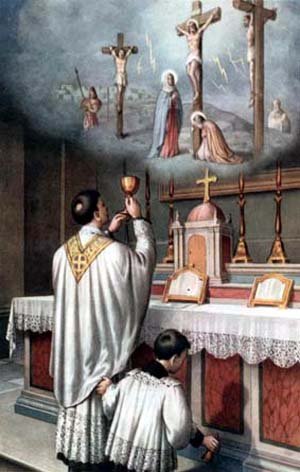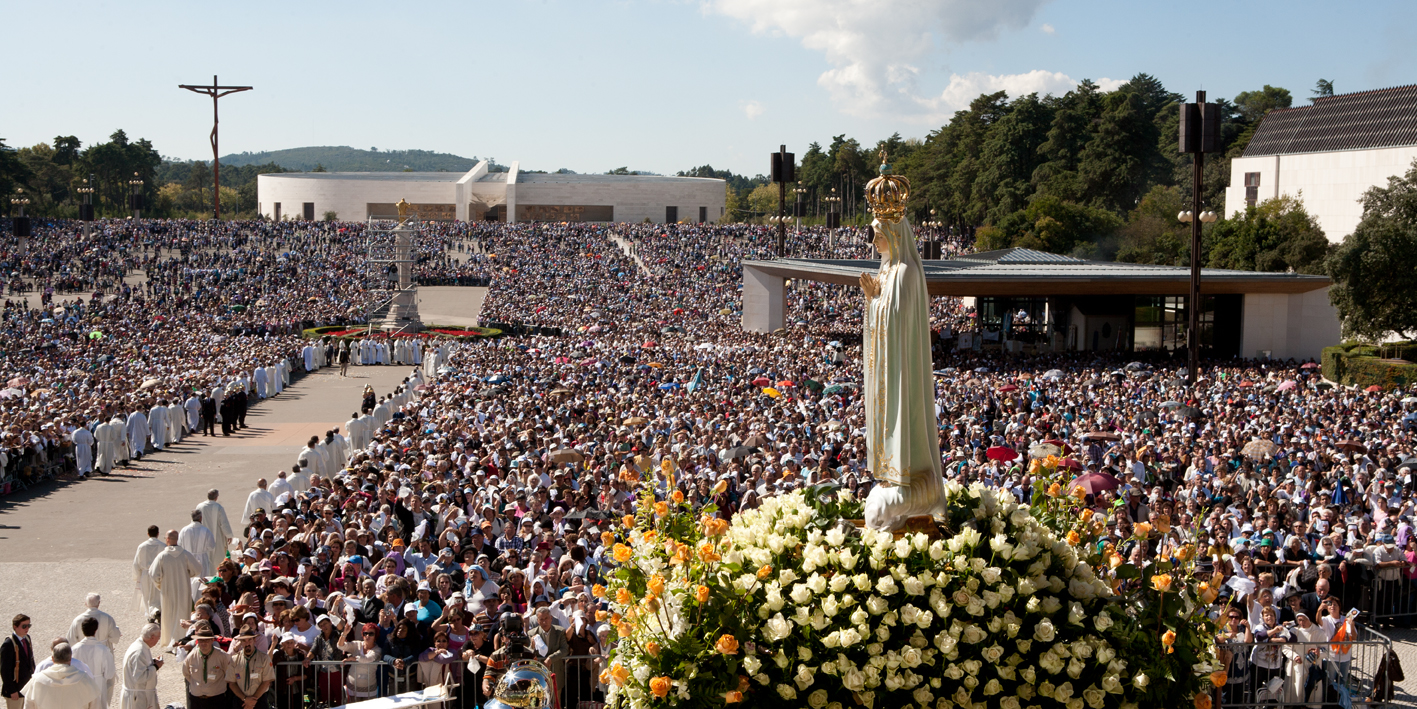
II
Definition of the Mass
Let us begin with the definition of the Mass given in No. 7 of the "Institutio Generalis" at the beginning of the second chapter on the Novus Ordo: "De structura Missae":
"The Lord's Supper or Mass is a sacred meeting or assembly of the People of God, met together under the presidency of the priest, to celebrate the memorial of the Lord. Thus the promise of Christ, "where two or three are gathered together in my name, there am I in the midst of them", is eminently true of the local community in the Church (Mt. XVIII, 20)".
The definition of the Mass is thus limited to that of the "supper", and this term is found constantly repeated (nos. 8, 48, 55d, 56). This supper is further characterised as an assembly presided over by the priest and held as a memorial of the Lord, recalling what He did on the first Maundy Thursday. None of this in the very least implies either the Real Presence, or the reality of sacrifice, or the Sacramental function of the consecrating priest, or the intrinsic value of the Eucharistic Sacrifice independently of the people's presence. It does not, in a word, imply any of the essential dogmatic values of the Mass which together provide its true definition. Here, the deliberate omission of these dogmatic values amounts to their having been superseded and therefore, at least in practice, to their denial.
In the second part of this paragraph 7 it is asserted, aggravating the already serious equivocation, that there holds good, "eminently", for this assembly Christ's promise that "Where two or three are gathered together in my name, there am I in the midst of them" (Matt. XVIII, 20). This promise which refers only to the spiritual presence of Christ with His grace, is thus put on the same qualitative plane, save for the greater intensity, as the substantial and physical reality of the Sacramental Eucharistic Presence.
In no. 8 a subdivision of the Mass into "liturgy of the word" and Eucharistic liturgy immediately follows, with the affirmation that in the Mass is made ready "the table of the God's word" as of "the Body of Christ", so that the faithful "may be built up and refreshed"; an altogether improper assimilation of the two parts of the liturgy, as though between two points of equal symbol value. More will be said about this point later.
This Mass is designed by a great many different expressions, all acceptable relatively, all unacceptable if employed, as they are, separately in an absolute sense.
We cite a few: The Action of the People of God; The Lord's Supper or Mass, the Pascal Banquet; The Common Participation of the Lord's Table; The Eucharistic Prayer; The Liturgy of the Word and the Eucharistic Liturgy.
As is only too evident, the emphasis is obsessively placed upon the supper and the memorial instead of upon the unbloody renewal of the Sacrifice of Calvary. The formula "The Memorial of the Passion and Resurrection of the Lord", besides, is inexact, the Mass being the memorial of the Sacrifice alone, in itself redemptive, while the Resurrection is the consequent fruit of it.
We shall later see how, in the very consecratory formula, and throughout the Novus Ordo, such equivocations are renewed and reiterated.

 inundado por um mistério de luz que é Deus e N´Ele vi e ouvi -A ponta da lança como chama que se desprende, toca o eixo da terra, – Ela estremece: montanhas, cidades, vilas e aldeias com os seus moradores são sepultados. - O mar, os rios e as nuvens saem dos seus limites, transbordam, inundam e arrastam consigo num redemoinho, moradias e gente em número que não se pode contar , é a purificação do mundo pelo pecado em que se mergulha. - O ódio, a ambição provocam a guerra destruidora! - Depois senti no palpitar acelerado do coração e no meu espírito o eco duma voz suave que dizia: – No tempo, uma só Fé, um só Batismo, uma só Igreja, Santa, Católica, Apostólica: - Na eternidade, o Céu!
inundado por um mistério de luz que é Deus e N´Ele vi e ouvi -A ponta da lança como chama que se desprende, toca o eixo da terra, – Ela estremece: montanhas, cidades, vilas e aldeias com os seus moradores são sepultados. - O mar, os rios e as nuvens saem dos seus limites, transbordam, inundam e arrastam consigo num redemoinho, moradias e gente em número que não se pode contar , é a purificação do mundo pelo pecado em que se mergulha. - O ódio, a ambição provocam a guerra destruidora! - Depois senti no palpitar acelerado do coração e no meu espírito o eco duma voz suave que dizia: – No tempo, uma só Fé, um só Batismo, uma só Igreja, Santa, Católica, Apostólica: - Na eternidade, o Céu!